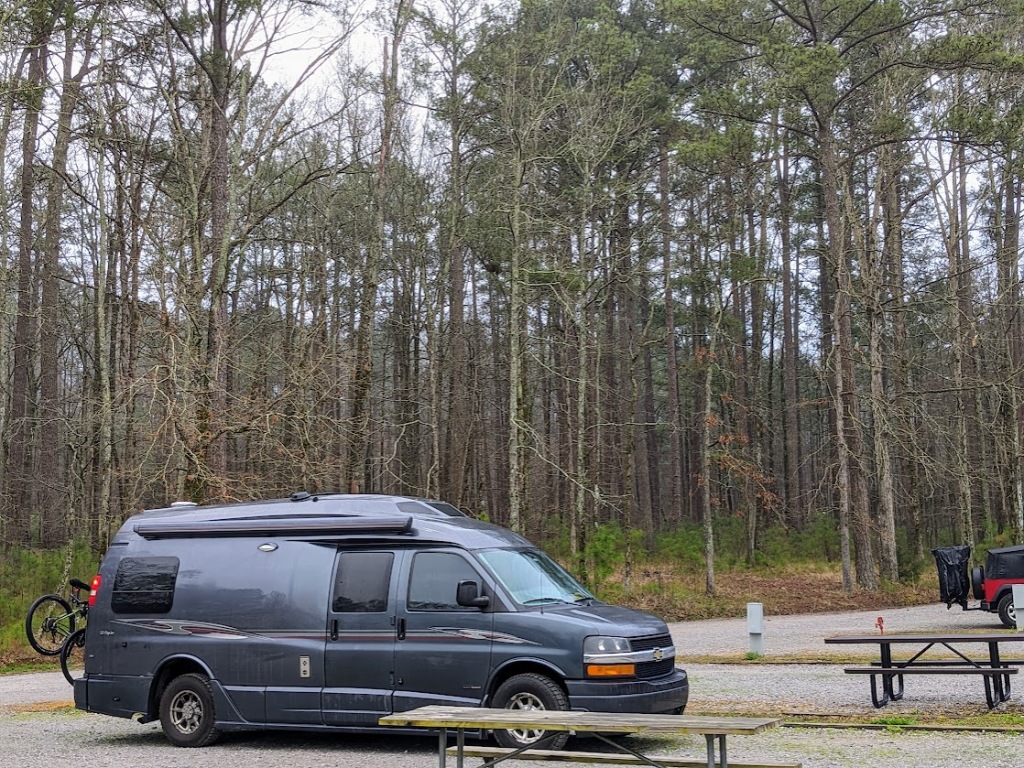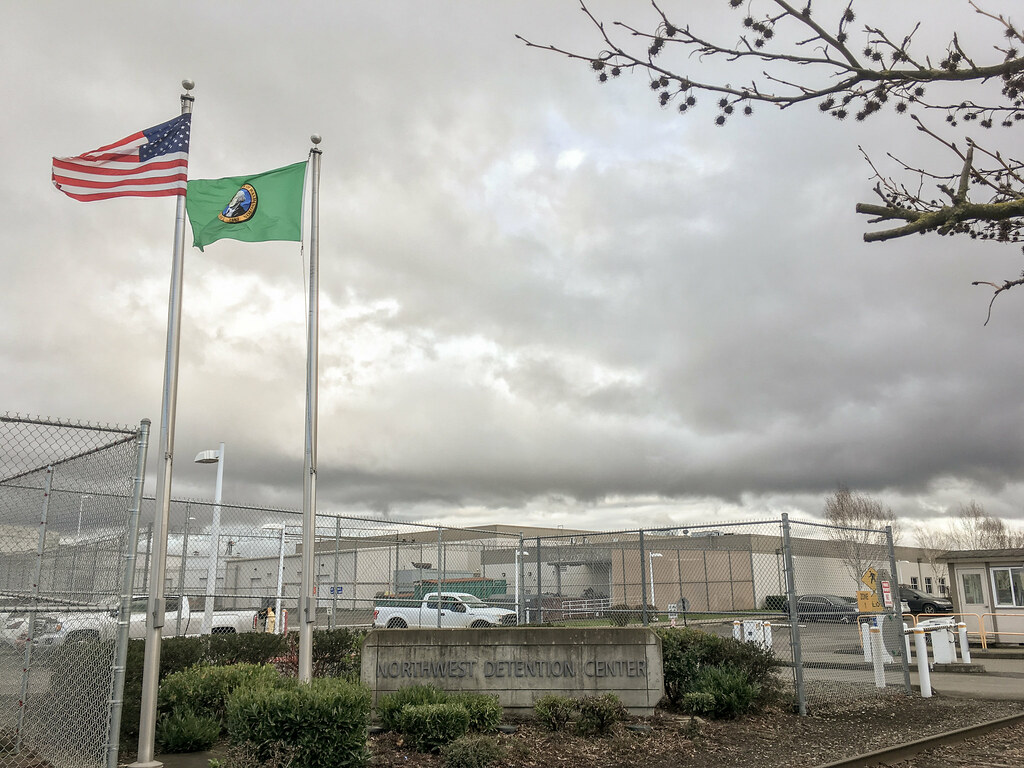Campering may be different from camping, but in one respect, road-tripping in Vanna Grey is no different than in any other vehicle. When it comes to route, THE WEATHER IS IN CHARGE.
And thanks to climate change, late-February weather has tricks up its sleeve we’d never have dreamed of when we started this road-tripping business a dozen years ago.
But I’m getting ahead of myself. We left Albuquerque on Thursday in bright, innocent sunshine. If my Adventure Buddy Beth hadn’t been leaving too, we’d have been mighty tempted to stay.
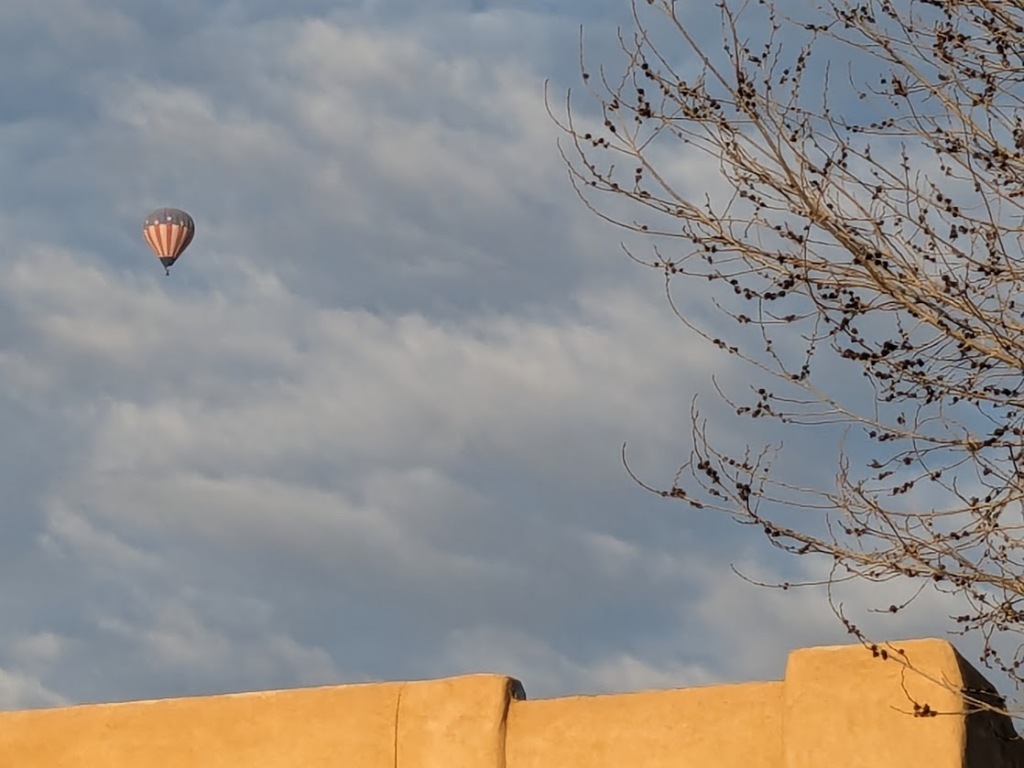
Drawing us forward, though, was a reservation that night for one of our favorite road-trip discoveries: gorgeous Palo Duro Canyon.

Imagine the prettiest little cousin of Grand Canyon, only 30 minutes from Amarillo (the big ugly child of a cattle feedlot and a monster truck rally).
But I shouldn’t be saying mean things about Amarillo. Right now it’s an endangered oasis in a hot desert of suffering, thanks to the million-plus-square-mile fire that was burning out of control just north of there. Just when we wanted to drive on through.
[Not pictured: The Smokehouse Creek Fire. Nor all the fires in Oklahoma, along the length of I-40…the route we’d planned to take.]
Weirdly enough, the top of the Texas Panhandle was also getting SNOW that morning—good for the fires, I guess, but one more reason for us to keep ourselves and Vanna out of trouble.
[Not pictured: “Some say the world will end in fire/Some say in ice.”]
So we ditched all plans, and our camping reservation (sob) and headed SSE to Roswell (not pictured: aliens), then straight east into…big sigh…West Texas. Which, as it happened, was delightfully snow-free, and NOT ON FIRE.
[Not pictured: West Texas, or the motel we defaulted to when we couldn’t find a campground that felt like it catered to—well, folks with discretionary funds and time. Vacationers, not those planted by necessity. I’m glad those campgrounds are there for those who need them. I just didn’t want to stay there.]
[Not pictured: those campgrounds.]
Our second day driving through Texas, we did score a decent bike path on the outskirts of Dallas…
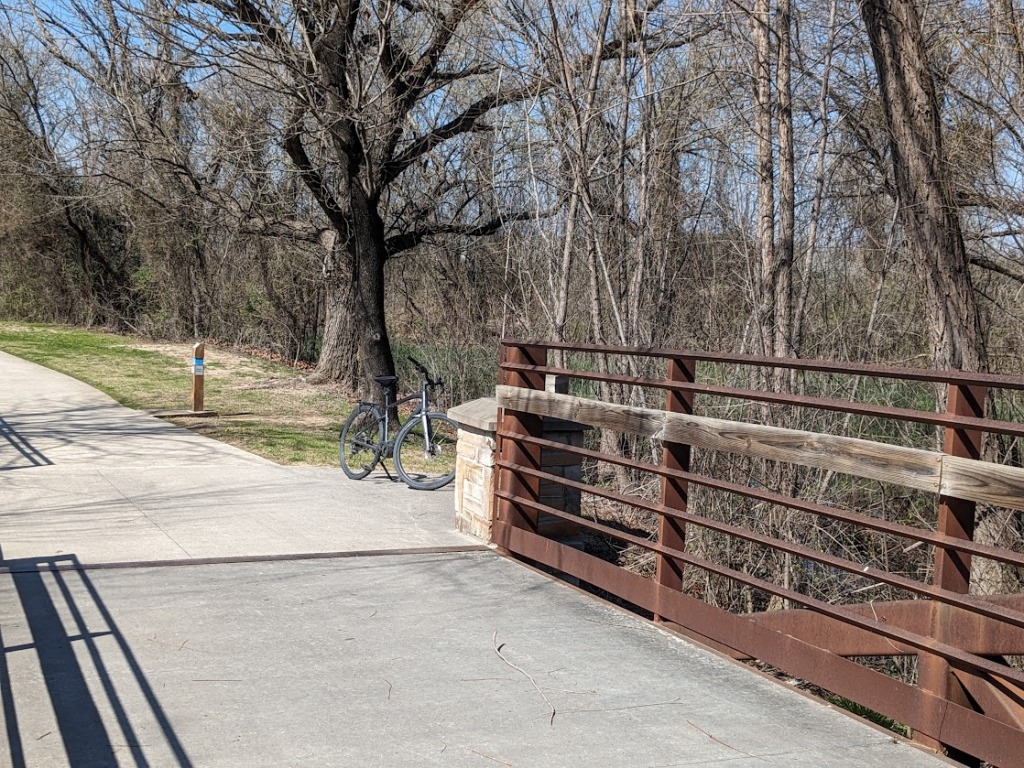

…and a pleasant campground at a state park near the Louisiana border. We got there as darkness fell, and next morning I forgot to take a picture, so…
[Not pictured: Eastern Texas’s Martin Creek Lake State Park]
Next day we got another nice bike ride in Shreveport, Louisiana.

Along the way, I noticed that the clover we were zooming past all seemed to have spotted leaves. On closer examination…

It was a Tarheel Men’s Basketball Day, and since we’ve been missing a lot of games due to travel, we decided to treat ourselves to a motel in Clinton, Mississippi with a TV. Afterward, I took myself on a walk around the nearby campus of Mississippi College and made the acquaintance of some attractive trees.
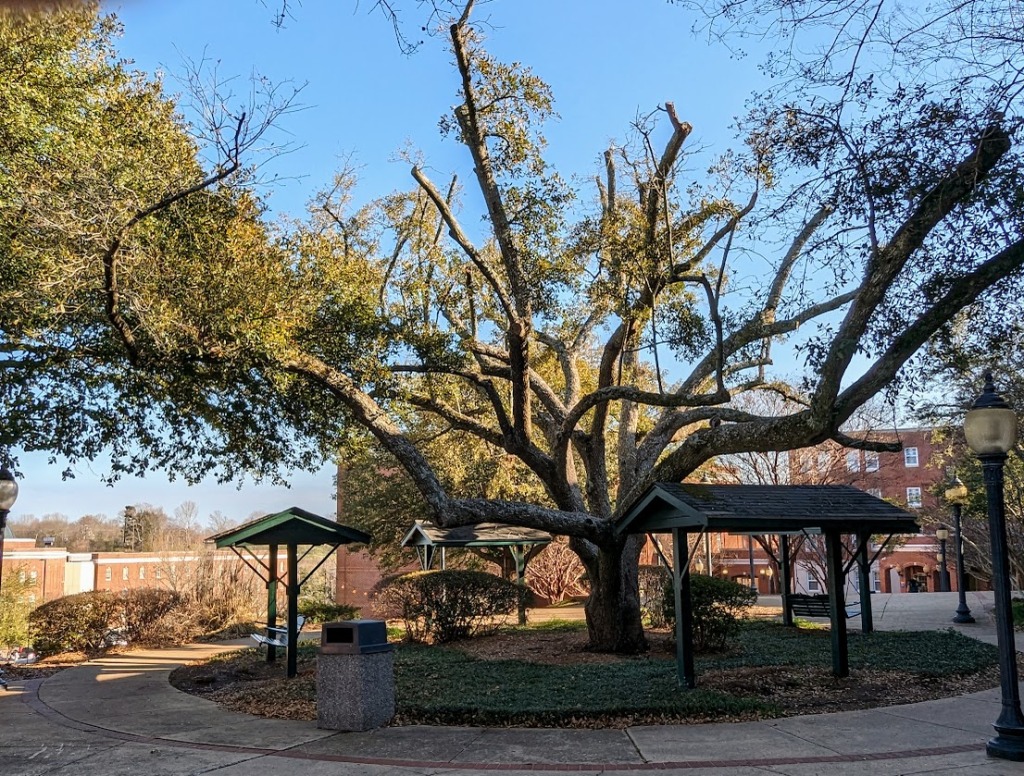
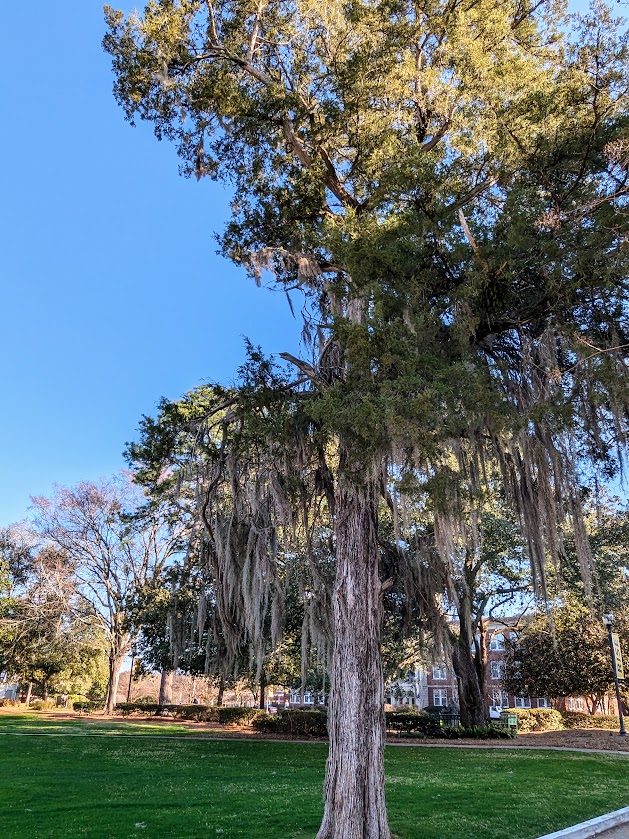
The trees didn’t care about the Heels’ victory as much as I did.
On our last day that doesn’t include my home state of North Carolina, we managed to combine both recreation and camping by stopping at Oak Mountain State Park, just outside of Birmingham, Alabama. We’ve stayed here twice before and I’ve recorded our admiration for the park’s trails both times.
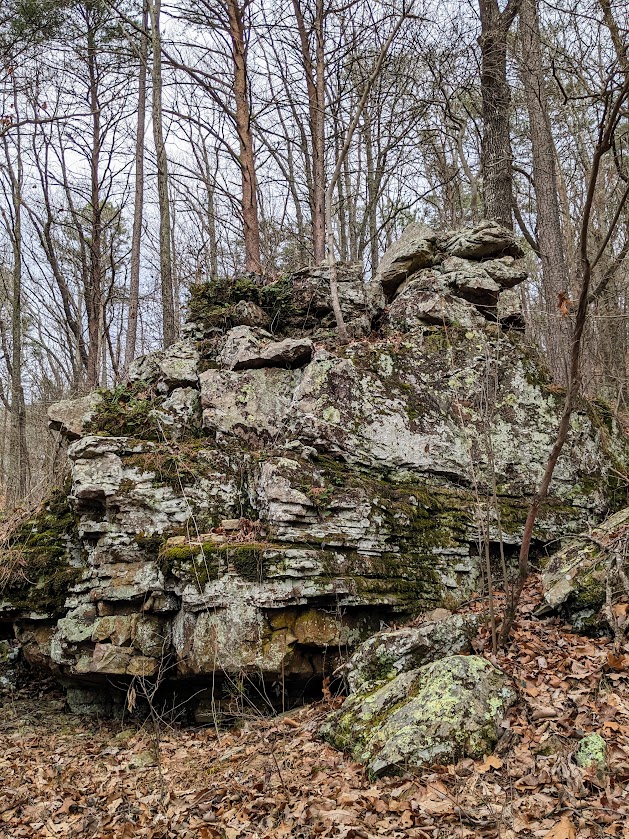
Spring was busting out…
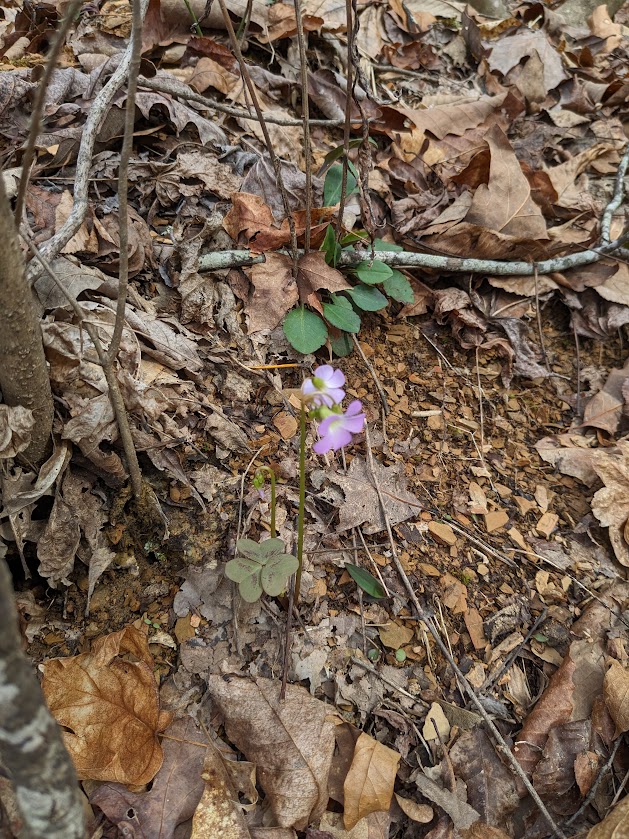
…including my favorite southern treat, the redbud:

Our last visit, however, was a few years ago and since then I’ve read a book which has changed the way I experience Oak Mountain. Economist Heather McGhee’s book, The Sum of Us: What Racism Costs Everyone and How We Can Prosper Together, explores the lengths to which white America cut off its own nose to spite its segregationist face, when forced to integrate public facilities following the Brown v. Board decision.
Rather than swim with Black folks, white folks all over the country FILLED IN AND DESTROYED THEIR PUBLIC SWIMMING POOLS. The largest such public pool in the U.S. at the time? According to Dr. McGhee, it was right here at Oak Mountain, and it’s now an equestrian field. Next to which we camped.

Talk about erasure! We’d enjoyed the place twice and would have continued to blithely enjoy it without knowledge of this despicable history, had it not been for Dr. McGhee’s scholarship. I highly recommend her book; it will actually fill you with more zeal than despair.
But for now? It’s on to North Carolina, and all the friends and family and fried chicken and Tarheels that entails. I can just picture it. See you there!
